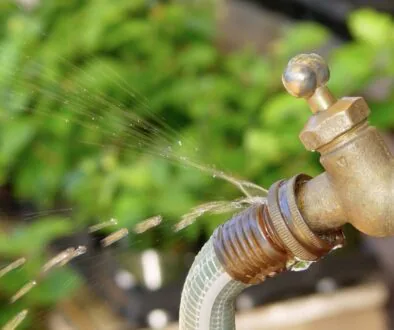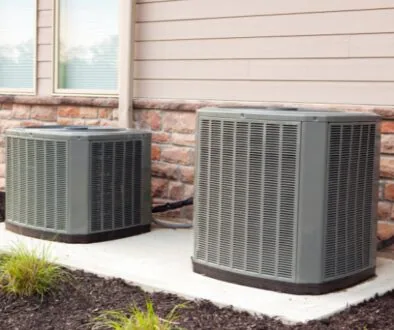What That Furnace Smell Means: 5 Common Odors Explained
A well-functioning furnace should keep your home warm without producing unusual smells. If you’ve noticed strange odors coming from your heating system, it’s important to determine whether they are harmless or a sign of a more serious issue. Some smells, like burning dust, are normal when turning on the furnace for the first time in the season, while others, such as a gas or electrical burning smell, could indicate a safety hazard.
To help you identify what your furnace is trying to tell you, the experts at Niebuhr Plumbing, Heating, and Air Conditioning have outlined five common furnace odors and what they mean.
1. Burning Dust
If you notice a dusty or slightly burning smell the first time you turn on your furnace in the fall, it’s usually nothing to worry about. Over time, dust and debris settle on the furnace’s internal components, such as the heat exchanger and burners. When the furnace fires up after months of inactivity, this dust burns off, creating a temporary burning smell.
What To Do:
- The smell should go away within a few hours.
- Run your furnace with windows open if the odor is strong.
- Replace or clean your air filter to help remove lingering dust.
- If the smell persists for more than a day, schedule an inspection to check for deeper buildup.
2. Electrical Burning
An electrical or plastic-burning smell coming from your furnace can be a sign of overheating components, wiring issues, or a failing blower motor. If your furnace smells like something is overheating, turn it off immediately to prevent further damage.
Possible Causes:
- Overheated blower motor or failing capacitor
- Worn-out wiring or electrical components
- Blocked airflow causing excessive heat buildup
What To Do:
- Turn off the furnace and check your air filter. A clogged filter can cause the furnace to overheat.
- If the smell continues, contact an HVAC professional to inspect the electrical system before turning the furnace back on.
3. Rotten Egg Smell
Natural gas itself is odorless, but utility companies add a chemical called mercaptan to give it a distinct sulfur or rotten egg smell. If you detect this odor near your furnace, water heater, or gas lines, it could indicate a gas leak, which is a serious and potentially dangerous issue.
What To Do:
- Leave your home immediately. Do not turn on lights, use appliances, or create any sparks.
- Call your gas company or emergency services from a safe location.
- Do not return home until a professional has inspected and cleared the area.
Gas leaks are highly dangerous and should never be ignored. If your furnace smells like rotten eggs, treat it as an emergency.
4. Musty Or Moldy Smell
A musty smell coming from your furnace could indicate mold or mildew buildup inside the ductwork, air filter, or humidifier. This often happens when moisture accumulates in the system, creating the perfect environment for mold growth.
What To Do:
- Check and replace the furnace filter.
- Inspect the air ducts for signs of moisture or visible mold.
- If you use a whole-house humidifier, clean it regularly to prevent mold growth.
- If the smell persists, have a professional inspect the ductwork for leaks or excess humidity issues.
5. Oil Or Smoky Smell
If you have an oil furnace and notice an oil or smoky odor, it could be due to a clogged burner, improper combustion, or a ventilation issue. If the smell is coming from a gas furnace, it could mean there is an issue with the heat exchanger, which requires immediate attention.
What To Do:
- If the smell is faint and brief, it may be normal as the furnace cycles on.
- If the smell lingers or worsens, turn off the furnace and schedule an inspection.
- For oil furnaces, check for visible oil leaks around the unit.
When To Call A Professional
While some furnace smells are temporary and harmless, others indicate serious safety hazards. Contact an HVAC professional if you notice:
- A rotten egg smell (gas leak)
- A burning plastic or electrical smell that persists
- A strong, persistent smoky or oil odor
- Any smell that worsens over time or returns frequently
Conclusion
Your furnace plays a crucial role in keeping your home warm and comfortable, but unusual odors shouldn’t be ignored. Whether it’s a harmless burning dust smell or a serious gas leak, understanding what your furnace odors mean can help you take the right steps to keep your home safe.
If you notice a concerning smell coming from your furnace, Niebuhr Plumbing, Heating, and Air Conditioning is here to help. We provide expert furnace inspections and heating services throughout the Coulee Region, including La Crosse, Onalaska, West Salem, and Sparta. Contact us today at 608-782-1700 for professional heating system maintenance and repairs.




